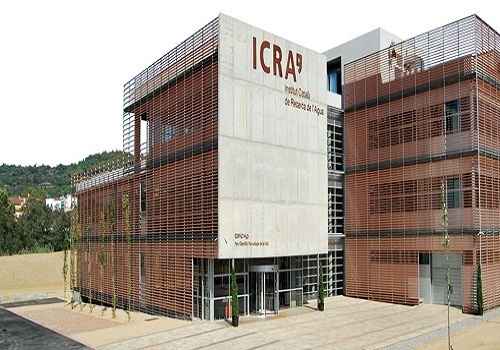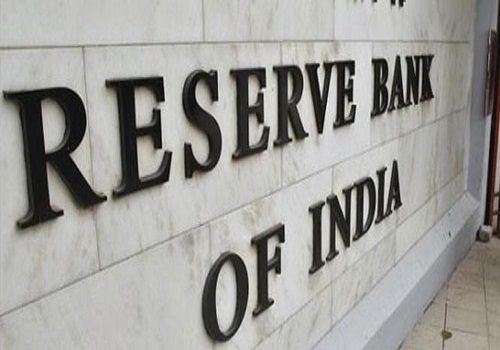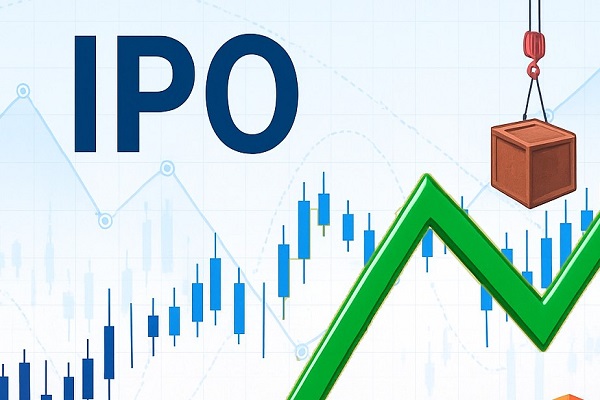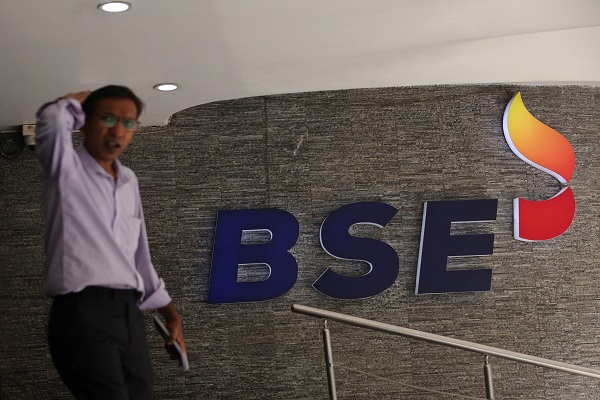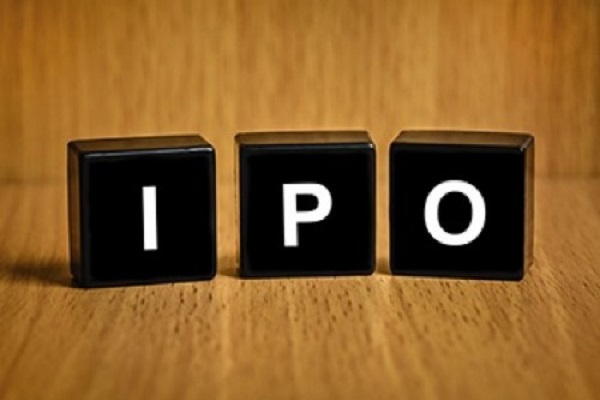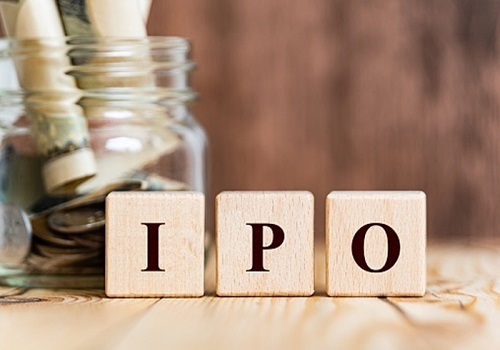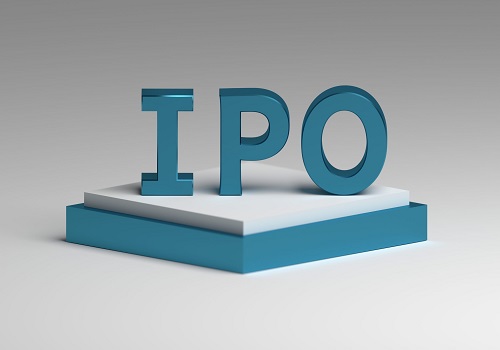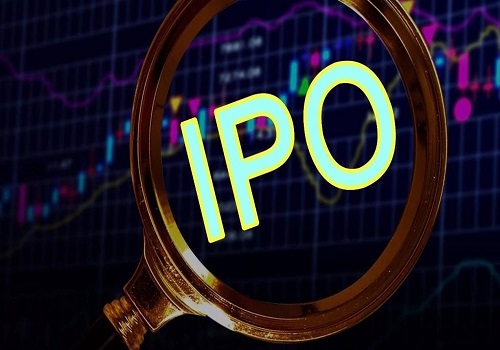Maxvolt Energy Industries coming with IPO to raise Rs 54 crore

Maxvolt Energy Industries
- Maxvolt Energy Industries is coming out with an initial public offering (IPO) of 30,00,000 equity shares in a price band Rs 171-180 per equity share.
- The issue will open on February 12, 2025 and will close on February 14, 2025.
- The shares will be listed on SME Platform of NSE.
- The face value of the share is Rs 10 and is priced 17.10 times of its face value on the lower side and 18.00 times on the higher side.
- Book running lead manager to the issue is Smart Horizon Capital Advisory.
- Compliance Officer for the issue is Rajni.
Profile of the company
Established in the year 2019, the company is primarily engaged in the business of manufacturing of lithium-ion batteries of various range supplied through a diversified sales & distribution mix viz. authorised dealers and distributors and OEMs under its brand name of “MaxVolt Energy” widely used in Electric Vehicles (i.e., E-Scooter, E- Rickshaw, ECycle), Energy Storage and Electronics Gadgets etc. It also manufactures customised batteries packs as per the requirement of manufacturers of different industries. In addition to manufacturing, it is supplier of Graphene Battery packs and Battery Chargers designed and developed by it in its own brand name. It designates some of dealers and distributors as service centres. As on September 30, 2024, it has services centre in the states Uttar Pradesh, Delhi, Bihar, Madhya Pradesh and Gujarat across, dealers and distributors have access to these service network to resolve the defects in the batteries. These service centers help it to provide fast and hassle-free service to its dealers and end customers.
The company is an ISO 9001:2015 certified. Its manufacturing unit situated at E- 82, Industrial Area, Bulandshar Road, Ghaziabad, Uttar Pradesh spread across in 18,000 square feet. Its manufacturing Unit is strategically located in the central part with availability of all modes of transportation and facilitates convenient transportation of its products, sourcing of raw materials and easy access to customers. Its registered office is located at F-108, Plot No. 1 F/F United Plaza, Community Centre, Karkardooma, New Delhi.
The company currently manufacture a variety of batteries and has combined capacity to manufacture up to 97.2 MWh batteries as on September 30, 2024. It intends to enhance its production capabilities through backward integration vide establishing a new battery line facility at its factory situated E-82, Industrial Area, Bulandshar Road, Ghaziabad, Uttar Pradesh, along with additional machineries for expansion. It intends to expand its capacity and increasing its product offerings through the expansion of its existing facilities, addition of battery lines, which will allow it to produce a new line of parts such as re-cycling of used batteries.
Proceed is being used for:
- Repayment or prepayment, in full or in part, of borrowings availed by the company from banks, financial institutions and non-banking financial companies
- Funding of capital expenditure requirements of the company towards purchase of plant and machineries
- General corporate purposes
Industry Overview
The global automotive industry is experiencing a major transformation. Vehicles fully powered by electric batteries comprise an increasing share of new vehicle purchases. Compared to internal combustion engine vehicles, battery electric vehicles run fully on electricity, not gasoline or diesel. Therefore, battery electric vehicles do not directly emit carbon dioxide, and if the batteries’ electricity source has low or no carbon dioxide emissions, increased electric vehicle adoption can lower carbon dioxide emissions in the transportation sector, helping countries meet climate-related goals. For example, in India, the carbon dioxide emissions of electric vehicles are 8 percent to 24 percent lower than internal combustion engine vehicles over their lifetimes. Transitioning to electric vehicles can also strengthen countries’ energy security by reducing import dependence on oil, and it can increase countries’ economic prosperity by creating new market opportunities. Thus, many countries, including India, are incentivizing electric vehicle adoption.
Across the battery supply chain, India lacks notable production capacity, but it has existing production and significant growth potential in certain goods. For raw materials, India does not produce lithium, nickel, and cobalt, yet it produces other raw materials necessary in the battery supply chain like copper, graphite, and manganese. For precursor materials, India lacks processing capacity for several precursor materials such as lithium carbonate, but it has expertise producing other precursor materials such as aluminium, refined copper, and phosphoric acid. India also currently lacks production capacity in most cell components, yet Indian companies are building production capacity in cell components like anode material. Similarly, India does not have sizable production capacity for battery cells (i.e., less than 1 percent of global capacity), but Indian companies are building battery cell production facilities, with LFP chemistries estimated to represent 70 percent of India’s future battery production.
Furthermore, India already assembles battery packs for different types of electric vehicles, and with high downstream demand for two-wheeled and three-wheeled electric vehicles and government subsidies for purchasing such vehicles, India has considerable production potential for battery packs in two-wheeled and three-wheeled electric vehicles because downstream domestic demand incentivizes upstream domestic production. Lastly, like most countries, India lacks significant dedicated recycling capacity for electric vehicle batteries, but it does have a robust electronic waste recycling segment. In short, while India’s present role across the global battery supply chain is negligible, India could become a notable producer of certain goods in the global battery supply chain.
Pros and strengths
Wide range of products: The company is committed to innovation and excellence is reflected in its diverse range of lithium batteries, meticulously designed to meet the evolving needs of consumers across India. The company offers a wide range of batteries used in various industries. Maintaining a variety of products provides it with an opportunity to cater to diverse needs of different customer segment. Its product portfolio includes different specification of Lithium battery packs for all type of electric vehicles, energy storage systems & medical device batteries which it manufactures along with that it also supplies lead batteries, lead and lithium battery chargers. It also provides facility of customization w.r.t battery capacity, watt-hours, case dimension and weight etc. Its comprehensive range of products and this facility of customization enable it to capitalize on growth opportunities and demand in its industry.
Customized product development: The company’s customers prefer to have tailor-made product as per their particular requirement. Its manufacturing team focuses on the precise desires of customers and with the help of individual support, customized products are developed.
Quality assurance: The company’s dedicated quality control personnel rigorously inspect battery packs at multiple levels, ensuring excellence before customer delivery. With specialized expertise in lithium-ion battery integration, it optimizes performance and durability, employing proprietary techniques to minimize energy loss and enhance thermal management. It has been accredited with ISO 9001:2015 for manufacturing of lithium batteries for electric vehicles, energy storage solutions, electronic gadgets, medical equipments, lithium chargers which underscores its dedication to delivering top-notch quality products. With each step of its quality control process, it reaffirms its commitment to excellence, ensuring customer satisfaction. Having obtained such certification ensures that adequate quality systems as per industry standards are followed by it.
Risks and concerns
Limited operating history: The company was incorporated in 2019 and supplied its first li-ion battery in January 2020. As it has a limited operating history, there is a limited historical basis on which it can make judgements regarding its ability to develop, manufacture, and deliver batteries or their accessories or its results of operations, including its ability to achieve profitability in the future. Its historical revenue growth should not be considered indicative of its future performance.
Significant revenue comes from few customers: The company has garnered 85.28%, 81.14% and 63.43% of its total revenue from top 10 customers in FY24, FY23 and FY22 respectively. Given the nature of its business, there can be no assurance that it would be able to attract new customers or reduce its dependence on any of its top 10 customers. It will continue to be reliant on its major customers for the foreseeable future. Accordingly, any failure to retain these customers or to remain suppliers to these customers and/or negotiate and execute contracts on terms that are commercially viable, with these select customers, could adversely affect its business, financial condition and results of operations. In addition, any defaults or delays in payments by a major customer or the insolvency or financial distress by a major customer may have an adverse effect on business, financial condition and results of operations.
Geographical constrain: The company generates its major portion of revenue from its operations in certain geographical regions especially from Delhi, Haryana, Madhya Pradesh and Uttar Pradesh. Such geographical concentration of its business in these regions heightens its exposure to adverse developments related to competition, as well as economic and demographic changes in these regions which may adversely affect its business prospects, financial conditions and results of operations. It may not be able to leverage its experience in such regions to expand its operations in other parts of India. Factors such as competition, culture, regulatory regimes, business practices and customs, industry needs, transportation, in other markets where it may expand its operations may differ from those in such regions, and its experience in these regions may not be applicable to other markets.
Outlook
Maxvolt Energy Industries is engaged in the business of manufacturing of lithium-ion batteries. The company manufactures lithium-ion batteries for electric vehicles, energy storage, and electronics, sold through dealers, distributors, and OEMs under the “MaxVolt Energy” brand. The company has dealership network and presence in across various states with wide range of the products. On the concern side, the company’s few of customers contribute majority of its revenues from operations. If one or more of such customers choose not to source their requirements from it, its business, financial condition and results of operations may be adversely affected. Moreover, the company currently derives its revenue predominantly from the sale of batteries used in e-scooter. If the same is not well received by the market, its business and future prospects could be adversely impacted.
The company is coming out with a maiden IPO of 30,00,000 equity shares of Rs 10 each. The issue has been offered in a price band of Rs 171-180 per equity share. The aggregate size of the offer is around Rs 51.30 crore to Rs 54.00 crore based on lower and upper price band respectively. On performance front, the revenue from operations has shown a growth of 253.61% from Rs 1,367.95 lakh in Fiscal 2023 to Rs 4,837.15 lakh in Fiscal 2024. This was mainly due to increase in revenue in overall business segments of company. In Fiscal Year 2024, the company achieved net profit of Rs 520.83 lakh, increase from Rs 27.88 lakh in Fiscal Year 2023. This growth can be attributed to a combination of higher revenue from operations and improved profit margins, driven by a robust demand for batteries in the electric vehicle (E-vehicle) sector.
The company is strategically focused on regularly updating and improving its manufacturing capabilities and infrastructure. It does this by adopting the technologies available to ensure its position in the lithium battery manufacturing industry. It is strategically moving towards fully automated the production process. To focus on operational efficiency, it intends to increase the production capacity in primary operations, automation of various processes to eliminate labor work, improve efficiency to reduce its fixed costs, to meet the clients demand for decreasing the lead times and to meet the EV Industries demands. To cater to the growing demand of its products from its existing customers and to meet requirements of new customers, it intends to expand its manufacturing capacities for existing products through backward integration and expansion.





.jpg)








